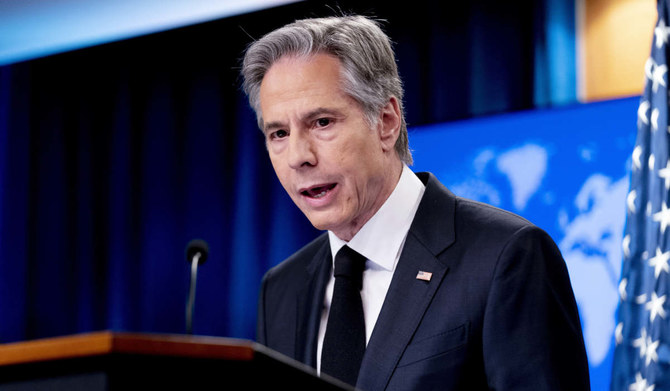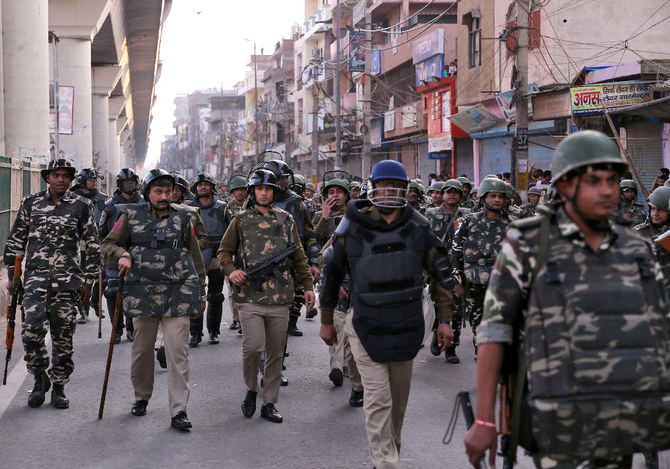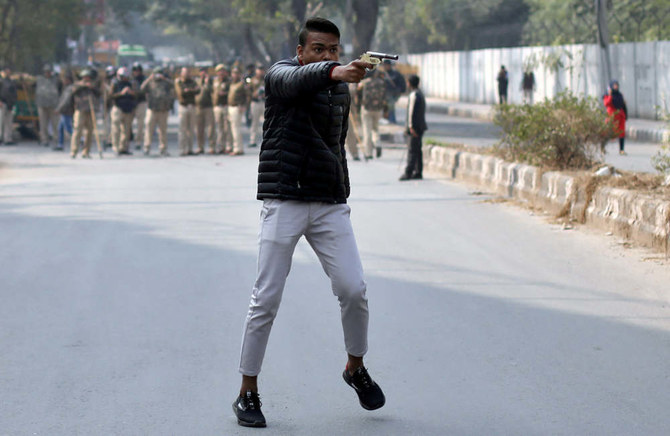WASHINGTON: The annual US report on human rights practices released on Monday listed “significant human rights issues” and abuses in India, including reported targeting of religious minorities, dissidents and journalists, the US State Department said.
The findings come nearly a year after Secretary of State Antony Blinken said the US was monitoring what he described as a rise in human rights abuses in India by some government, police and prison officials, in a rare direct rebuke by Washington of the Asian nation’s rights record.
US criticism of India is rare due to close economic ties between the countries and India’s increasing importance for Washington to counter China in the region.

People mourn next to the body of Muddasir Khan, who was wounded on Tuesday in a clash between people demonstrating for and against a new citizenship law, after he succumbed to his injuries, in a riot affected area in New Delhi, India, February 27, 2020. (REUTERS)
Significant human rights issues in India have included credible reports of the government or its agents conducting extrajudicial killings; torture or cruel, inhuman or degrading treatment or punishment by police and prison officials; political prisoners or detainees; and unjustified arrests or prosecutions of journalists, the US report added.
Advocacy groups have raised concerns over what they see as a deteriorating human rights situation in India in recent years under the Hindu nationalist Bharatiya Janata Party of Prime Minister Narendra Modi.
Human Rights Watch has said the Indian government’s policies and actions target Muslims while critics of Modi say his Hindu nationalist ruling party has fostered religious polarization since coming to power in 2014.

A radical Hindu religious flag flutters on the minaret of a burnt-out mosque following sectarian riots over India's new citizenship law, at Mustafabad area in New Delhi on February 28, 2020. Muslims in India's capital held regular on February 28 prayers under the watch of riot police, capping a week which saw 42 killed and hundreds injured during the city's worst sectarian violence in decades. (AFP)
Critics point to a 2019 citizenship law that the United Nations human rights office described as “fundamentally discriminatory” by excluding Muslim migrants from neighboring countries; anti-conversion legislation that challenged the constitutionally protected right to freedom of belief; and revoking Muslim-majority Kashmir’s special status in 2019.
The government dismisses the accusations by saying its policies are aimed at the development of all communities.
In 2022, authorities also demolished what they described as illegal shops and properties, many of them owned by Muslims, in parts of India. Critics say the demolition drive was an attempt to intimidate India’s 200 million Muslims. The government defended the demolitions, saying they were enforcing the law.
“Human rights activists reported the government was allegedly targeting vocal critics from the Muslim community and using the bulldozers to destroy their homes and livelihoods” without due process, the US report released on Monday added.
Since Modi took office in 2014, India has slid from 140th in World Press Freedom Index, an annual ranking by non-profit Reporters Without Borders, to 150th place last year, its lowest ever. India has also topped the list for the highest number of Internet shutdowns in the world for five years in a row, including in 2022, Internet advocacy watchdog Access Now says.
“Civil society organizations expressed concern that the central government sometimes used UAPA (Unlawful Activities Prevention Act) to detain human rights activists and journalists,” the US report said.































